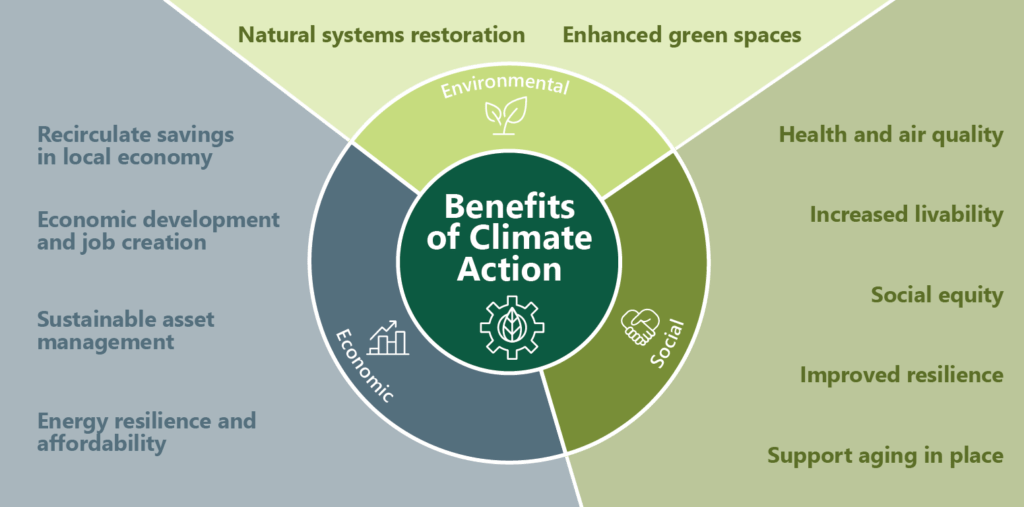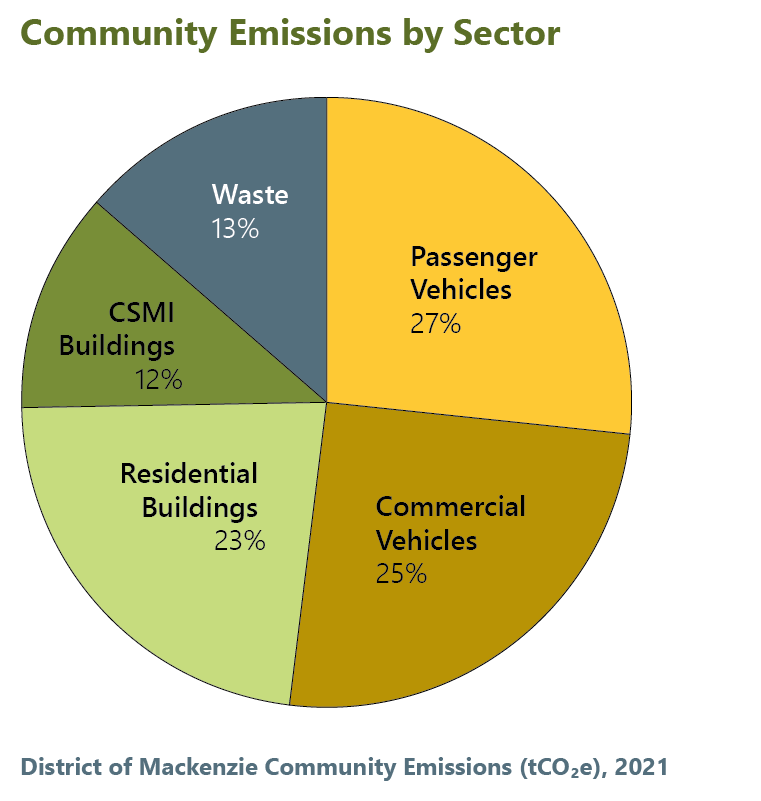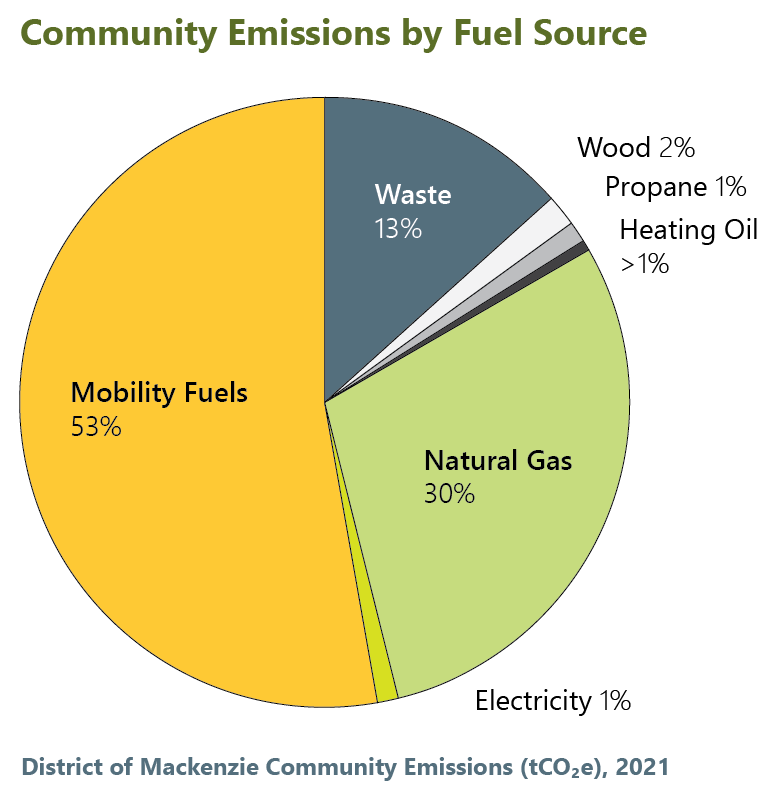Climate and Sustainability
WHAT WE ARE DOING AND WHY
Our town is at the heart of a spectacular wild landscape. We are lucky to live in a community that is surrounded by mountains, lakes, rivers, and wildlife.
Here, connecting to nature is as simple as walking out the front door! Just like local residents, businesses and tourists, the District of Mackenzie wants to protect and preserve the natural spaces we love—the clean air and drinking water, our animal neighbours, forests, parks, trails, lakes, and rivers. As a local government, this means identifying risks to our quality of life—and climate change is one such risk.
In the District, we are already experiencing the byproducts of climate change. Wildfire seasons have become longer and more severe, affecting community health, the economy and sometimes even our homes. There are more warm and dry days in the summer and extreme rain and snow events. This can impact water quality, agricultural production, and pest outbreaks, in addition to being dangerous to people.
It's important to note that climate change is a global issue with local implications. Communities like Mackenzie are not only impacted by climate change but also have a role to play in mitigating its effects through local climate action initiatives, sustainable land use planning, and efforts to reduce greenhouse gas emissions. Collaboration at local, regional, and national levels is essential to address the challenges posed by climate change and work toward a more sustainable future.
Contact
OUR OPPORTUNITY
Even though the changing weather that characterizes climate change is already happening, even our small community can make a difference. We all have a role to play. And here’s the good news: taking action to lower pollution and prepare for climate change impacts can open the door to making our community safer and more livable, be more efficient, and build economic benefits.
Different levels of government have policies and targets that influence emissions reduction locally. The national target is to reach net-zero emissions by 2050. In BC, the Climate Change Accountability Act has legislated targets to reduce GHG emissions by 80% below 2005 levels by 2050.

Locally, it is estimated that municipalities have direct or indirect influence over more than half of BC’s greenhouse gas emissions. In the District, our non-industrial emissions are largely from buildings, transportation, and waste emissions; these are the three areas that we have direct influence on at the municipal level.
MITIGATION AND ADAPTATION

Local governments are required to identify GHG emissions reduction targets as part of their Official Community Plan and report them to the Government of BC. Planning and development decisions made in departments across the District need to conform with the direction of these GHG targets. Further, reducing the emissions associated with government actions help our community meet our requirements as a signatory to the BC Climate Action Charter.
Beyond their influence in emissions reduction, local governments are also the first responders to climate-related impacts to infrastructure, residents, and natural systems and have a vested interest to minimize damages and associated costs. They also have local expertise and connections to stakeholders, which are necessary as adaptation planning requires a place-based approach. Preliminary climate adaptation data has been collected for the BC Agriculture & Climate Change Regional Adaptation Strategy series for the Regional District of Fraser-Fort George.
CO-BENEFITS OF CLIMATE ACTION
Acting on climate change strategically—considering both adaptation and mitigation— can provide other sustainability benefits for our community. For example, protecting or enhancing the street tree canopy can reduce temperatures and extreme heat, store and/or sequester carbon, provide habitat for birds, and absorb rainwater.

COMMUNITY VS. CORPORATE EMISSIONS
As a local government, the District differentiates between Community emissions produced by residents and businesses and Corporate emissions which come from all municipal operations, including snow removal, fire services, community centres and administrative buildings.


Our corporate and community non-industrial emissions are largely sourced from three areas: buildings, transportation, and waste. These are three areas that we have direct influence over at the municipal level. Currently, the District focuses on emissions that are produced when a vehicle or building operates—driving a car, heating a building, using electricity, etc.
WHAT WE ARE DOING
Learn what the District of Mackenzie is doing to address our corporate GHG emissions and see some of projects we have completed.
 250-997-3221
250-997-3221